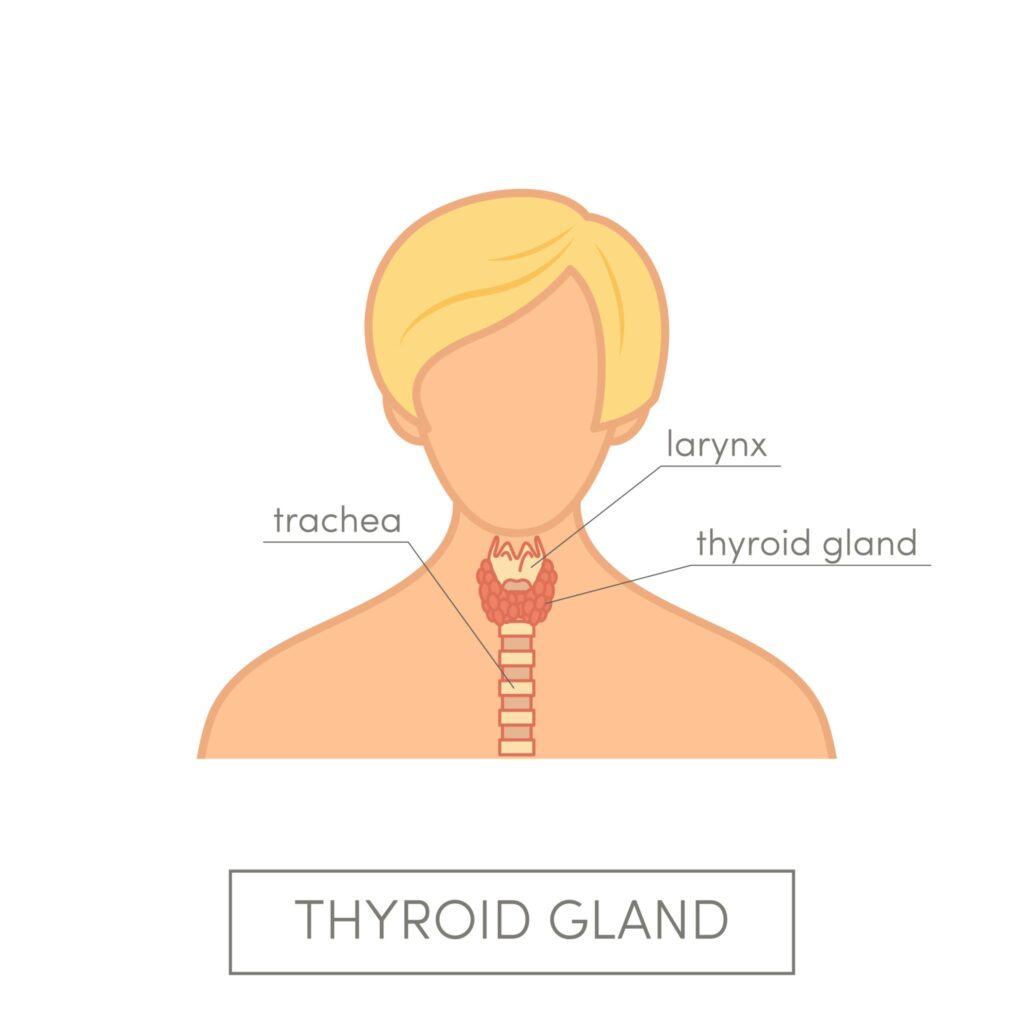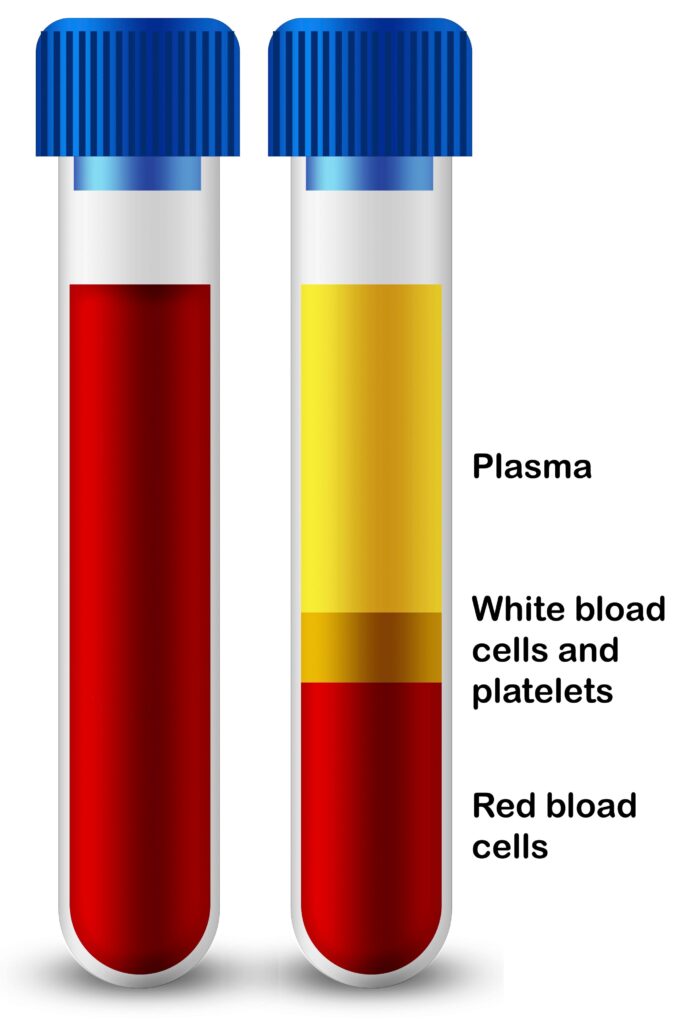Distressed woman holding her baby, showing signs of postpartum thyroiditis symptoms such as fatigue and emotional strain

Table of Contents
The Post-Baby Roller Coaster: Navigating Unexplained Changes
Becoming a new mom is a joyful experience, but it also comes with physical and emotional challenges. Sometimes, the fatigue, mood swings, or unexplained weight changes you experience may not just be normal postpartum stress—they could be signs of postpartum thyroiditis symptoms.
Recognizing these symptoms early is crucial for your health and wellbeing. This article explains the most common postpartum thyroiditis symptoms, which occur in two phases: an overactive thyroid and an underactive thyroid. Understanding these changes helps you differentiate normal postpartum adjustment from thyroid-related issues and seek appropriate care.
1. What is Postpartum Thyroiditis?

The thyroid is a small, butterfly-shaped gland at the base of your neck that regulates metabolism and energy. After pregnancy, some women experience postpartum thyroiditis symptoms due to the immune system mistakenly attacking the thyroid, causing inflammation.
Postpartum thyroiditis usually occurs in two stages. First, the thyroid becomes overactive, releasing excess hormones. Later, it becomes underactive, producing insufficient hormones. Both stages can mimic common postpartum experiences, such as fatigue, irritability, or weight changes.
Recognizing the difference is essential. While normal postpartum changes are temporary, untreated thyroid dysfunction can exacerbate symptoms and affect your daily life. Many women initially dismiss their symptoms, thinking they are part of adjusting to life with a newborn. Knowing the common postpartum thyroiditis symptoms allows you to advocate for testing and care. For more context, see normal postpartum changes.
2. Symptoms of the Overactive Thyroid (Hyperthyroidism) Phase
The first stage of postpartum thyroiditis usually appears within the first 4 months after delivery. During this phase, the thyroid releases too many hormones, putting your body in overdrive. Common postpartum thyroiditis symptoms include:
- Anxiety, irritability, or nervousness
- Heart palpitations or rapid heartbeat
- Feeling hot or sweating excessively
- Unexplained weight loss
- Hand tremors
- Trouble sleeping
- Muscle weakness
- Loose stools or diarrhea
- Difficulty concentrating
Because these symptoms can resemble normal postpartum stress or exhaustion, many women overlook them. It is important to distinguish between physical and emotional causes. A simple thyroid blood test can confirm overactivity. Treatment may include beta-blockers to manage heart rate and anxiety. Early recognition helps reduce the overlap with fatigue and mood changes, making recovery faster and smoother.
3. Symptoms of the Underactive Thyroid (Hypothyroidism) Phase
The second stage usually starts 4–8 months after delivery and can last up to a year. During this phase, the thyroid slows down, producing too few hormones. Common postpartum thyroiditis symptoms include:
- Extreme fatigue
- Unexplained weight gain
- Constipation
- Dry skin and brittle hair
- Feeling unusually cold
- Low mood or irritability
- Memory or concentration issues
- Muscle weakness or cramps
- Hair loss or coarse hair
- Heavy or irregular periods
- Fluid retention
Because many of these symptoms mimic common postpartum challenges, they are often dismissed. Differentiating thyroid issues from normal postpartum adjustment is essential. Blood tests measuring thyroid hormone levels can confirm hypothyroidism. Treatment may include thyroid hormone replacement therapy, which helps restore energy, stabilize mood, and reduce the impact of these symptoms on daily life.
4. Getting a Diagnosis and Finding Relief
If you notice persistent fatigue, mood changes, or unexplained weight fluctuations, consult your doctor. Many women assume these symptoms are normal postpartum adjustment, but testing can identify thyroid involvement.
Diagnosis typically includes:
- Review of symptoms and medical history
- Physical exam
- Blood tests measuring TSH, free T4, and thyroid antibodies

Treatment depends on the thyroid phase. Hyperthyroidism may require beta-blockers to control heart rate and anxiety. Hypothyroidism may need thyroid hormone replacement therapy like levothyroxine.
Additionally, following self-care tips including proper rest, gentle exercise, and balanced nutrition—supports recovery. Recognizing and addressing postpartum thyroiditis symptoms early reduces prolonged fatigue, mood disturbances, and helps you feel more like yourself.
5. Prognosis and Taking Care of Yourself
Most women recover from postpartum thyroiditis within 12–18 months, but about 20% may develop permanent hypothyroidism. Regular monitoring and follow-up appointments are crucial.
Self-care is key. Prioritizing sleep, nutrition, gentle activity, and tracking symptoms can help manage fatigue, mood changes, and other postpartum thyroiditis symptoms. Incorporating self-care tips and focusing on postpartum wellness supports overall recovery and prevents complications.
Early recognition ensures timely treatment, reducing the risk of prolonged fatigue, weight changes, and mood disturbances. Prioritizing your health empowers you to regain energy and fully enjoy life with your newborn.
Conclusion
Understanding postpartum thyroiditis symptoms can make a huge difference in how you navigate your first year as a new mom. The two phases—the initial overactive stage (hyperthyroidism) and the later underactive stage (hypothyroidism)—can feel confusing and overwhelming.
Key takeaways:
- Not all women experience both phases; symptoms vary widely.
- Early diagnosis and monitoring are essential.
- Self-care, proper nutrition, gentle activity, and medication (if prescribed) are crucial.
- Regular follow-ups with your healthcare provider ensure long-term thyroid health.
Prioritizing your health benefits both you and your baby. Trust your instincts, reach out for support, and don’t ignore persistent postpartum thyroiditis symptoms. If you notice any unusual changes in your energy, mood, or weight, schedule a check-up with your healthcare provider today to get the care you deserve.


